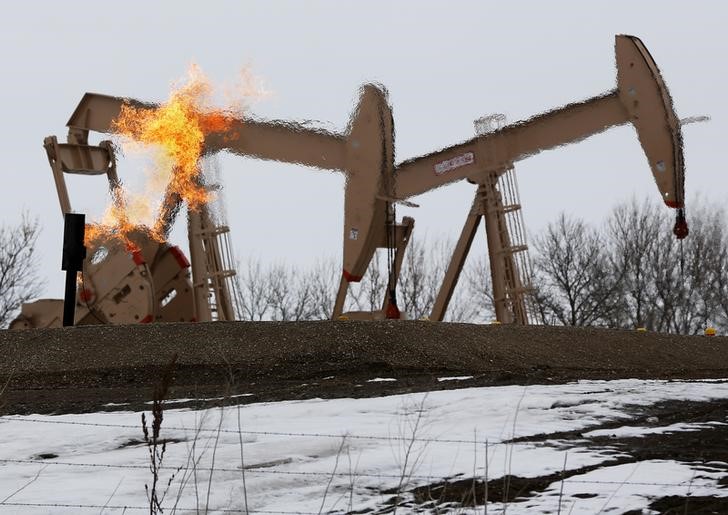
Oil prices rose Tuesday with supply remaining tight and as confidence grows that the rise in cases of the Omicron variant of Covid won’t derail the global economic recovery.
By 9:15 AM ET (1415 GMT), U.S. crude futures traded 2.2% higher at $79.94 a barrel and the Brent contract rose 1.9% to $82.37.
U.S. Gasoline RBOB Futures were down 1.8% at $2.3173 a gallon.
The Organization of the Petroleum Exporting Countries and their allies, including Russia, a group known as OPEC+, has promised to increase production in successive monthly meetings but has struggled to make good on its word.
“This is evident when looking at OPEC production levels for December, where OPEC members within the deal increased output by 150Mbbls/d, against a possible output increase of 250Mbbls/d,” said analysts at ING, in a note.
So, although the likes of Kazakhstan and Libya have started to return their production levels back to near normalcy after unscheduled outages, global inventories are still below historic averages.
The American Petroleum Institute is set to release the first of this week’s supply reports later in the session, and is expected to show another drop in crude stockpiles.
Turning to the demand side, the spread of the Omicron variant shows few signs of slowing down, with the United States reporting 1.35 million new coronavirus infections on Monday, according to a Reuters tally, the highest daily total for any country in the world.
However, on the brighter side, a number of European governments are now relaxing Covid-19 rules to keep hospitals, schools and emergency services going, an acknowledgement that the Omicron variant is less dangerous than previous dominant strains.
Additionally, data out of Europe, a region hard hit by the Omicron variant, has been positive of late, with U.K. retail sales growing 4.6% in last month compared with December 2019 while Spanish industrial production rose 4.8% in November, a sharp improvement from the revised drop of 0.7% the previous month.
“Omicron has yet to wreak the havoc of the Delta variant and may never do so, keeping the global recovery on track, and OPEC+ compliance meant that spare production capacity was limited,” said Jeffrey Halley, an analyst at OANDA. “Both factors will con




